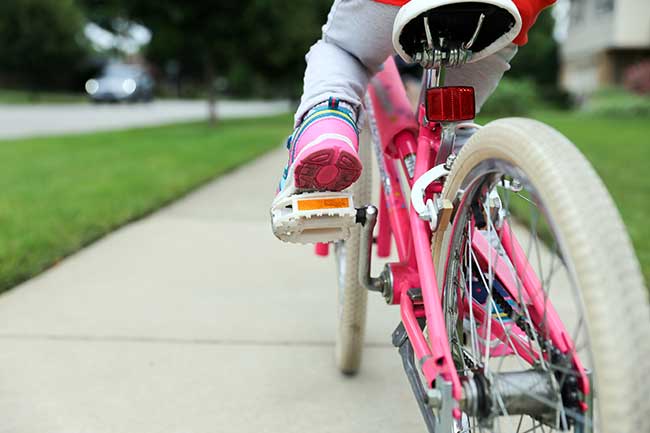by Joani Schultz
“People talk about bike riding when they want to remind us that some things, once learned, are not forgotten.
What they don’t mention is how we learned. No one learns to ride a bike from a book, or even a video.
You learn by doing it.
Actually, by not doing it. You learn by doing it wrong, by falling off, by getting back on, by doing it again.
PS this approach works for lots of things, not just bikes. Most things, in fact.”
Those words of wisdom came from Seth Godin—a favorite blogger of mine.
Since I’ve spent my life lifting up the value of experiential learning in ministry, Seth’s blog really caught my attention.
It astounds me that teachers choose lecture over experience—especially when research says we retain up to 90% of what we experience compared to 10% of what we hear. It’s like wanting to get across town—fast—and deciding to walk instead of ride a bike. Riding a bike gets you where you want to go faster.
So why are we afraid of experiential learning (bike riding)?
Maybe it’s more about us being okay about “not doing.” Not doing things perfectly. By falling off. By trying again. By being willing to fail.
Group resources provide boatloads of practical ideas that require leaders to thrust learners into experiences and conversations. But why do some leaders resist using active learning? Or inviting people to talk in pairs during a sermon? Or investing in a Mission Trip? Or reaching their community through Lifetree Cafe?
Is it a fear of “falling off our leadership bike”? Like learning to ride a bike, We. Can. Do. This.
Let’s give experiential learning a whirl. Let go of our fears…
Our fear of looking silly.
Our fear of letting others grapple with issues without our “wisdom.”
Our fear others might not arrive at “the right answer.”
Our fear of making people uncomfortable.
Our fear of an experience taking too much time.
Our fear of our discomfort with a new methodology.
Our fear of trusting the Holy Spirit to really work.
We, as leaders, will never ride the “bike” of experiential learning if we’re not willing to fall off a few times.
Let’s do it!


